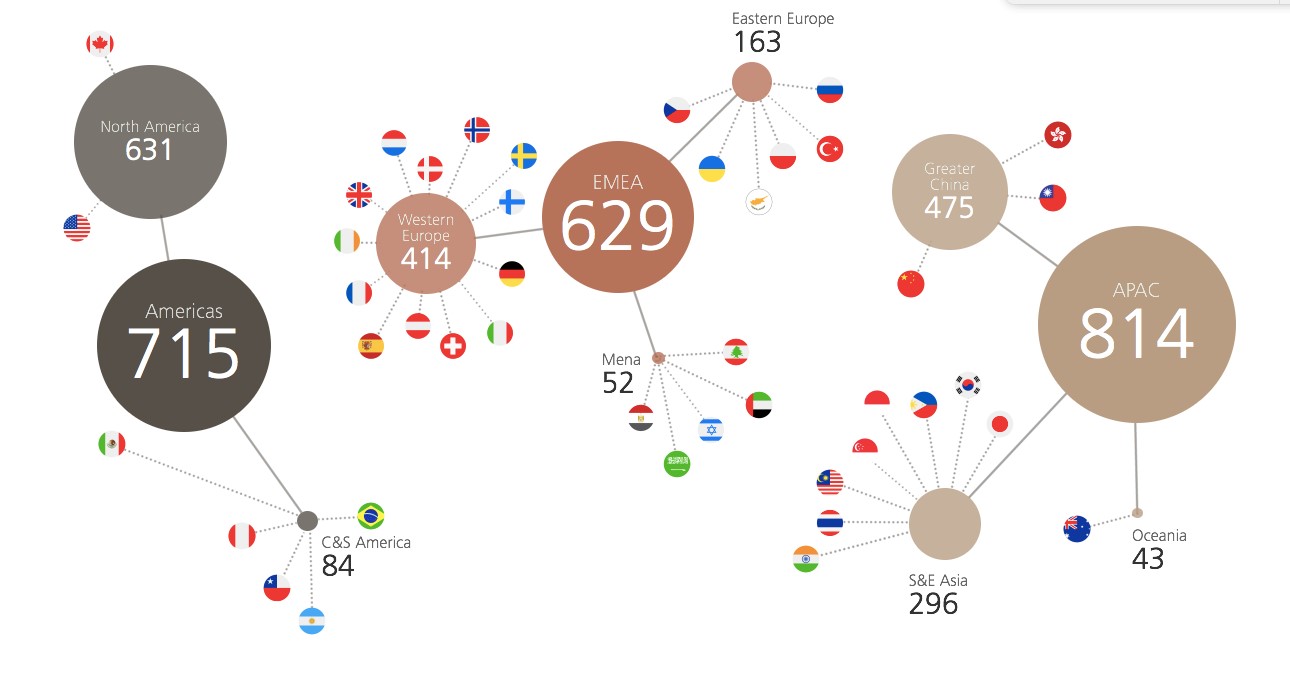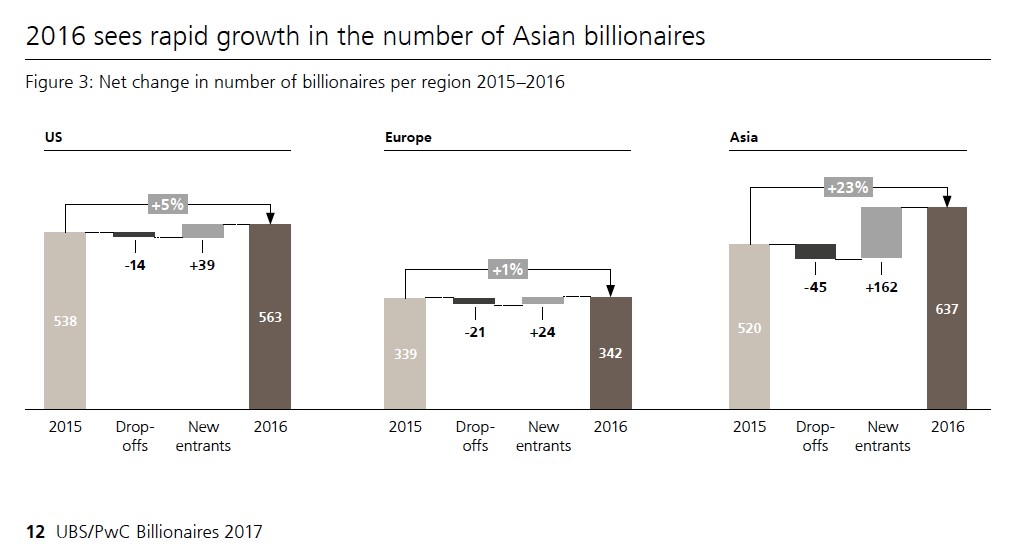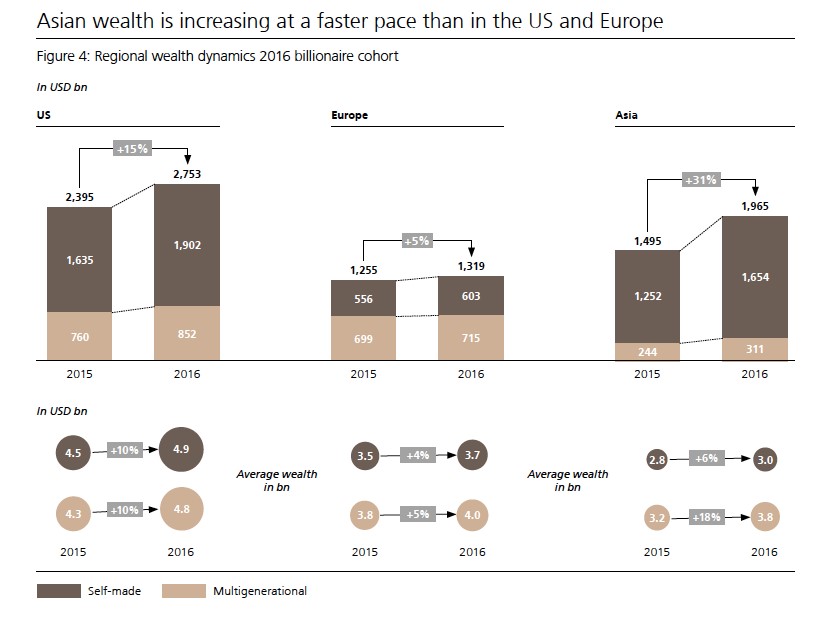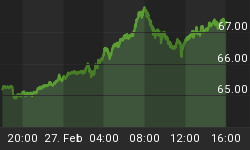China’s been “minting” two billionaires a week as of last year, and a “new cohort” of Chinese entrepreneurs is challenging Silicon Valley, making the billionaire battle yet another staging ground for the U.S.-China power struggle.
Indeed, the UBS/PwC Billionaire Insights report 2018 is ominously titled “New Visionaries and the Chinese Century”, and notes that the disruptive forces of China’s young entrepreneurs are set to “swell the ranks of the world’s billionaires for years to come”.
Billionaires are “at the vanguard of a new industrial revolution, which is harnessing the great power of technology to disrupt old industries and create new ones”, according the 2018 Billionaire Insights report, which contains highlights of what’s to come by year’s end.
In part, we can thank the war over intellectual property for helping to boost Chinese billionaires, and this is where the race really heats up. In the U.S., in its 2018 brief, UBS notes that while 62 new Silicon Valley unicorns popped up, China has produced 50 and they are “proving restless innovators and disruptors”.
Last year, the number of billionaires in the world hit 2,158, according to the report. Billionaire wealth grew 19 percent to $8.9 trillion in that same period—the largest increase in history.
America’s billionaires grew their wealth by $3.6 trillion, while APAC billionaires grew theirs by 2.7 trillion.
By region, the UBS/PwC billionaire map looks like this for 2018:

(Click to enlarge)
Of the 40 main breakthrough innovations over the last 40 years, billionaires have driven almost 80 percent—and 70 percent of those breakthroughs are technology-related.
China is closing in—fast. UBS says that 80 percent of the companies behind those breakthroughs are based in the Americas, and 20 percent are in the Asia-Pacific region.
It’s the pace, rather than the numbers, that might make this the “Chinese Century”. UBS notes that the U.S. added 22 billionaires last year, bringing its total to 585. But five years ago, it added 87 billionaires in a year, suggesting that the pace is slowing down significantly. But in China, billionaire growth is described as an “explosion”. From 2006 to 2017, the number of Chinese billionaires grew from 16 to 373. Related: MIT Invests $1 Billion In Artificial Intelligence
From 2016 to 2017, there is also a clear pattern. The U.S. growth pace was slowing, while the Chinese continued to mint billionaires at a much faster pace:

(Click to enlarge)

(Click to enlarge)
The 2017 figures indeed show that China is turning out two new billionaires every week—a pace that, if maintained, could soon let it outrun the U.S. in this race.
According to NYT, based on current rates of growth, Chinese billionaires will outnumber their American counterparts within four years.
And again, the name of this game is technology.
Wealth-X’s Billionaire Census 2017 concurs, noting that “China’s billionaire population has surged over the past five to 10 years, led by developments in the technology, consumer retail, and real-estate sector”.
But there is a major element that differentiates the Chinese billionaire from the American counterpart.
“[…] the average wealth and liquidity of China’s billionaires are below the global average – $2.7bn and $300m respectively – indicating how relatively few are in a position to cash out of their primary business," according to Wealth-X.
Billionaire wealth in Asia is very volatile because it is so closely linked to the public markets.
"So they can be a billionaire one day, but not the next. Only 40% of billionaires [in the US] have their wealth tied to public markets, compared to 70% in Asia," John Mathews, a Group Managing Director and Head of Private Wealth Management (PWM), told Business Insider a year ago.
According to a report from Credit Suisse's AG Group last week, there is one area where the U.S. has a much clearer and sustainable lead: Millionaires.
It had more than 17 million millionaires as of the middle of this year, with China boasting only 3.5 million.
By Damir Kaletovic for Oilprice.com
More Top Reads From Safehaven.com:
















